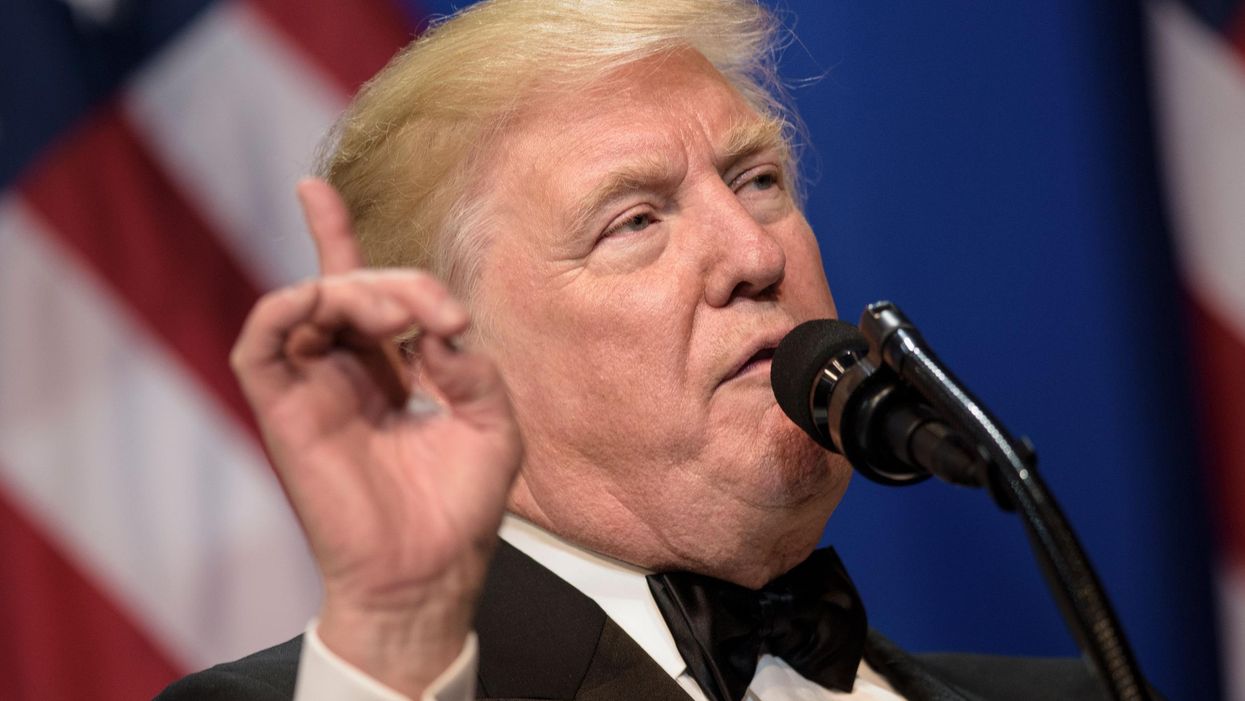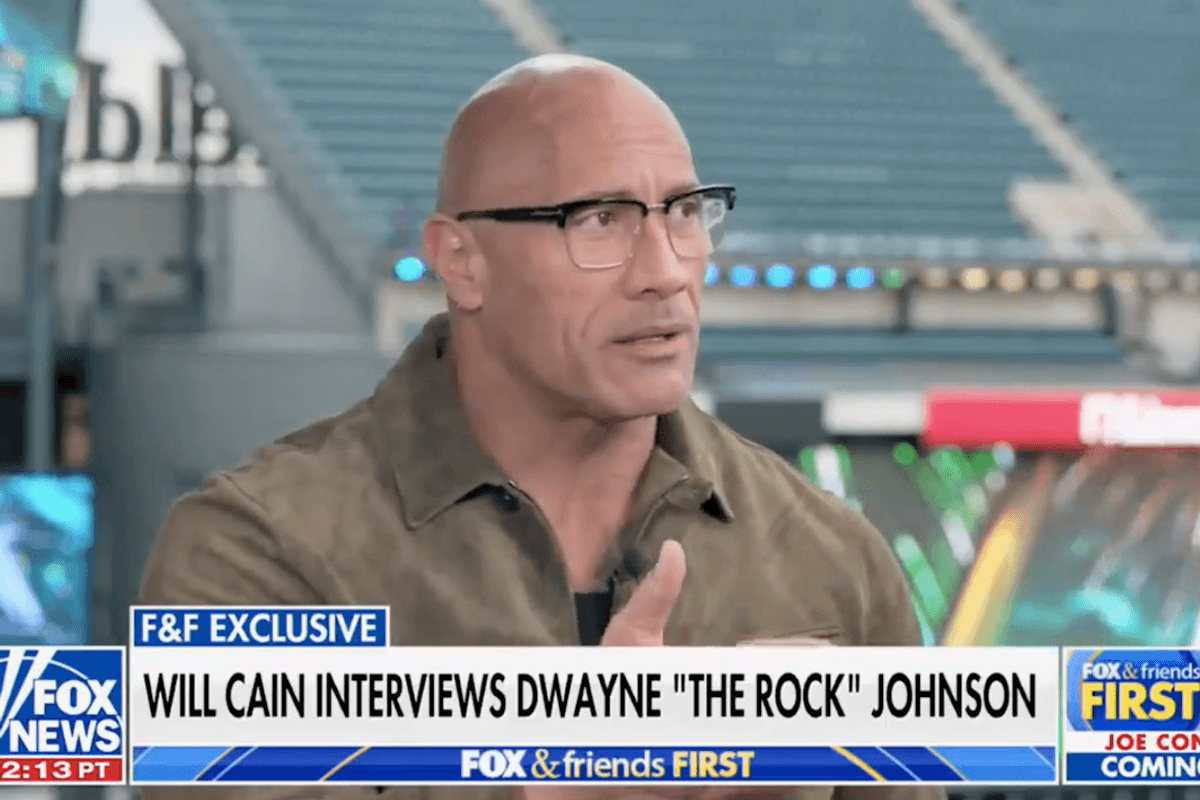News

Picture:
Getty Images / Brendan Smialowski
In 2016, the concept of having Donald Trump as President of the United States seemed like an impossible future.
But here we are. Well over 100 days in, and President Trump still remains in the White House. And Mar-a-Lago. And the Trump National Golf Club, Washington, D.C. And the Trump International Golf Club in West Palm Beach.
Ever since his election, some have been debating the possibility of impeachment and musing on the likelihood that the 45th President could be removed from office.
As reports emerge that Mr Trump allegedly requested the FBI drop its investigation into National Security Adviser Michael Flynn, and that he allegedly revealed classified information to senior Russian officials, calls for Trump's impeachment are louder than ever.
There is currently an on-going campaign and petition led jointly by Free Speech For People and RootsAction calling for Trump's immediate impeachment and removal from the office of the President.
But how much do you actually know about the impeachment process?
What does it mean?
- The process of bringing charges against a high official of Government by a legislative body
- Originates in English law also exists under constitution law in many nations
- Does not necessarily imply removal of the official from office - only the first step
- In the U.S., grounds for impeachment include: "Treason, bribery or other high crimes and misdemeanours"
- These refer to crimes committed against the state by public officials
Summary: Refers to charges against an official, but not automatic removal from office
How does it work?
- A document (or "resolution calling for a committee investigation of charges against the officer in question") known as an Article of Impeachment is taken to the House Committee on Rules
- They may take it to the Judiciary Committee for investigation
- The House of Representatives has the power to choose to impeach (i.e. votes to bring the charges) - needs a simple majority
- The Senate has the power to carry out impeachment (i.e. to try the case) - needs a two-thirds majority to convict
- Trial is presided over by the Chief Justice of the Supreme Court (if a president is impeached) or the Vice President (if another official)
Summary: A complex but more or less three-step process, involving two different votes

Has it happened before?
- Andrew Johnson (1868): narrowly avoided conviction by the Senate for violating the Tenure of Office Act (by removing the secretary of war)
- Bill Clinton (1999): threatened with impeachment for perjury and obstruction of justice, but acquitted by the Senate
- (Richard Nixon [1974]: resigned over Watergate scandal before impeachment proceedings were approved by the House could actually begin)
Summary: No president has ever been impeached by the Senate, but proceedings have occurred

Is it possible for Trump to be impeached?
- Despite his plans to give up operation of Trump Organisation (but not income or ownership), there is a potentially serious conflict of interests between his business and his political position
- In particular, it's been suggested that his business income abroad could theoretically influence foreign policy
- The 2012 Stop Trading on Congressional Knowledge Act - or Stock Act - prevents the president from insider trading, or profiting off information they obtain on the job, and demands that officials reveal financial information
- Tax breaks via Trump's businesses since 1980, if they continue, could be in violation of the Constitution's 'presidential compensation clause', which forbids withholding additional money beyond a fixed federal salary
- Contract for lease of Old Post Office in Washington D.C. (Trump International Hotel) forbids elected officials being part of, or benefiting from, that lease
- The Foreign Emoluments Clause in the Constitution forbids a president accepting a gift / benefit from a foreign leader / government
- Rent paid by the Industrial & Commercial Bank of China for its space in Trump Tower, and spending by foreign diplomats at Trump properties, could be in violation of this
- If the allegations that Donald Trump personally requested that the FBI drop its investigation into Flynn prove to be true, experts say it could place him in "impeachment territory".
David Gergen, who served as a top advisor to Presidents Nixon, Clinton and Raegen, told CNN:
After watching the Clinton impeachment, I thought I would never see another one. But I think we’re in impeachment territory for the first time.
I think that the obstruction of justice was the number one charge against Nixon that brought him down.
I'm a lapsed lawyer, I can not tell you if it meets all of the legal definitions, but I can tell you from a lay point of view, it looks like [Mr Trump] was trying to impede the investigation, he was using his power to do that, and when James Comey didn't go along with him, he wasn't his boy, he fired him, which I think is also relevant to the question of what he was trying to do.
So, from my point of view, this is of enormous consequence for his presidency.
Summary: Possible in theory, but there is very little precedent to guide lawmakers
Is it likely?
- A campaign or document focussing on the legal aspects, particularly the Stock Act and the Foreign Emoluments Clause, could be used
- A campaign or document focussing on Trump's unpopularity and more unpalatable behaviour would be unlikely to work
- No President in US history has ever been successfully impeached by the Senate
- Only one President (Richard Nixon) has ever failed to complete his term in office due to the threat of impeachment
- A Republican President would normally expect support from a Republican-majority government, making impeachment unlikely
- However, despite the Republican-led Congress, Trump's unpopularity within his own party could encourage lawmakers to pursue impeachment
- Bookies have revealed a huge surge in bets on Trump's impeachment, citing a one way traffic in betting
- Betting odds on Trump getting impeached or resigning before the end of his term are extremely good
Summary: History and process are against an impeachment, but the bets so far are on an unfinished term in office
We shall see...
More: The three little words missing from Donald Trump's victory speech
More: This screaming anti-Trump kid is saying what a lot of people are thinking
Top 100
The Conversation (0)
x













